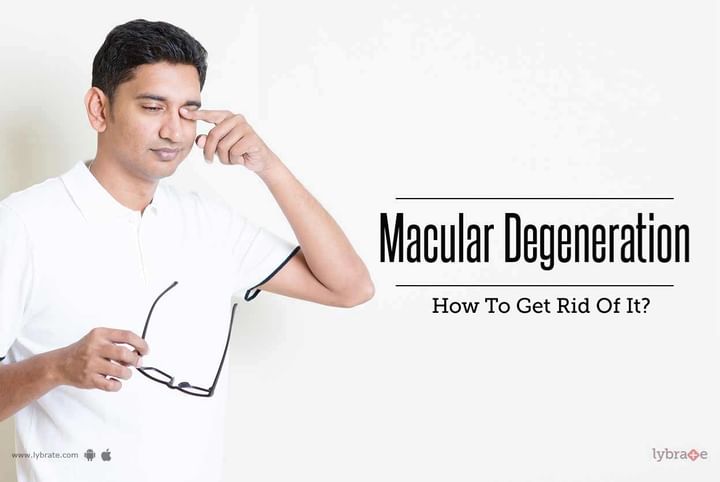Macular Degeneration - How To Get Rid Of It?
We spend so much time out in the sun every single day, going about our usual routine, heading for work, mostly preoccupied with our own thoughts that it hardly comes to our mind how our health is getting affected. Of course, most people take the necessary precautions to avoid tanning, skin problems and other common conditions. But how often do we think of the damage caused to our eyes?
Research studies show that people who spend a considerable amount of time outdoors and are exposed to sunlight almost all the time, are likely to develop severe eye problems such as macular degeneration.
Macular degeneration affects the retina, the layer present at the back of your eyeball. This layer consists of light-sensitive cells that help you see the world around. The tissues of your eyes become affected and dry out due to overexposure to sun’s UV rays. Macular degeneration can cause you to lose your central vision, which means your vision gets obstructed when you look straight ahead.
Types of Macular Degeneration-
Macular degeneration can be of two types-
- Dry macular degeneration- This is the most common form of macular degeneration. This condition occurs when yellow-coloured small deposits (known as drusen) start to develop beneath the macula. This leads to retinal damage and loss of vision. Nearly 85-90% of people are affected by dry macular degeneration.
- Wet macular degeneration- This eye condition is not that common, and only affects about 10-15% of people. Wet macular degeneration develops when abnormal blood vessels are formed beneath the macula and retina. You may observe a dark spot right at the center of the vision due to bleeding or leakage of the blood vessels.
Symptoms of Macular Degeneration-
Macular degeneration is a progressive disorder, meaning the condition will worsen over time. Recognizing the symptoms of this condition at an early stage is crucial. So watch out for the following signs-
- Blurred vision
- Difficulty adjusting to low light
- Inability to recognize faces
- Reduction in central vision
- A curvature of straight lines in the field of your vision
- Need for brighter lights
Macular degeneration prevents you from looking at things that are placed directly in front of you. It does not, however, cause complete blindness.
How is the condition treated?
Macular degeneration cannot be cured completely. But there are a number of ways to manage the severity of this condition.
High dose of zinc and antioxidant vitamins are prescribed to slow down the progression of Dry Macular Degeneration-
- 500mg of Vitamin-C
- 400 IU of Vitamin-E
- 2mg of copper as cupric oxide
- 80mg of zinc as zinc oxide
Laser surgery is performed to destroy the permeable blood vessels at the back of the retina.
Eye injections are given to block the growth factors responsible for the development of abnormal blood vessels.
Photodynamic therapy involves injecting a light-activated drug into your bloodstream. After injecting the drug, your eyes are exposed to light for about 90 seconds. This allows the therapy to improve your vision. You may have to undergo multiple sessions of this procedure.
Photocoagulation therapy is primarily directed towards treating Wet Macular Degeneration. High-energy laser beams are used in this procedure to destroy the abnormal blood vessels. The objective of the treatment is to prevent bleeding, thereby reducing further damage to the macula. Nevertheless, the laser can leave you scarred or leave behind a spot on the eyes.
Apart from the aforementioned treatment methods, one must adopt certain lifestyle changes to protect their eyes. These include- wearing sunglasses and magnifying lenses, adjusting the font size and brightness level on your computer, including lots of green veggies etc.



+1.svg)
